Filter by
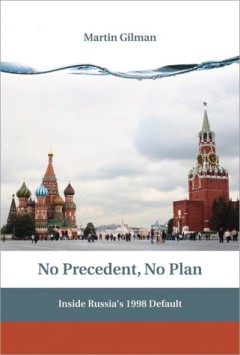
No precedent, no plan: Inside Russia's 1998 default
The definitive insider's account of Russia's painful transition to a market economy, as told by the IMF's senior man in Moscow at the time.OCLC-licensed vendor bibliographic record.
- Edition
- -
- ISBN/ISSN
- 9780262289429
- Collation
- 1 online resource (xx, 331 pages) :illustrations
- Series Title
- -
- Call Number
- -
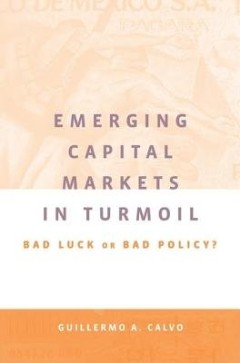
Emerging Capital Markets in Turmoil: Bad Luck or Bad Policy?
Analysis of financial crises in emerging market economies, including Mexico, Argentina, and Russia; traces the evolution of crisis theory and challenges the conventional wisdom.Since the mid-1990s, emerging market economies have been hit by dramatic highs and lows: lifted by large capital inflows, then plunged into chaos by constrained credit and out-of-control exchange rates. The conventional …
- Edition
- -
- ISBN/ISSN
- 9780262269728
- Collation
- 1 online resource (xiii, 547 pages) :illustrations
- Series Title
- -
- Call Number
- -
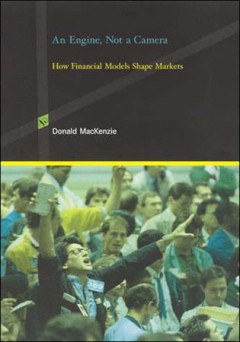
An Engine, Not a Camera: How Financial Models Shape Markets
This pioneering work in the social studies of finance describes how the emergence of modern finance theory has affected financial markets in fundamental ways. Paraphrasing Milton Friedman, the author says that economic models are an engine of inquiry rather than a camera to reproduce empirical facts.OCLC-licensed vendor bibliographic record.
- Edition
- -
- ISBN/ISSN
- 9780262278805
- Collation
- 1 online resource (x, 377 pages) :illustrations.
- Series Title
- -
- Call Number
- -
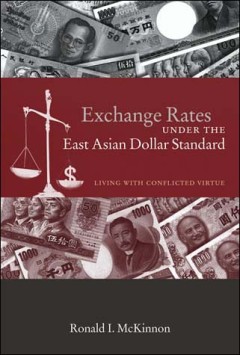
Exchange Rates under the East Asian Dollar Standard: Living with Conflicted V…
Essays by prominent scholars and policymakers honor one of the most influential macroeconomists of the last thirty years discussing the themes behind his work.OCLC-licensed vendor bibliographic record.
- Edition
- -
- ISBN/ISSN
- 9780262279550
- Collation
- 1 online resource (xix, 491 pages) :illustrations
- Series Title
- -
- Call Number
- -
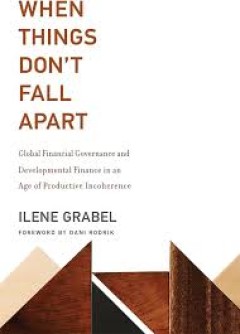
When things don't fall apart :global financial governance and developmental f…
An account of the significant though gradual, uneven, disconnected, ad hoc, and pragmatic innovations in global financial governance and developmental finance induced by the global financial crisis. In When Things Don't Fall Apart, Ilene Grabel challenges the dominant view that the global financial crisis had little effect on global financial governance and developmental finance. Most observers…
- Edition
- -
- ISBN/ISSN
- 9780262344043
- Collation
- 1 online resource (xxi, 372 pages)
- Series Title
- -
- Call Number
- -
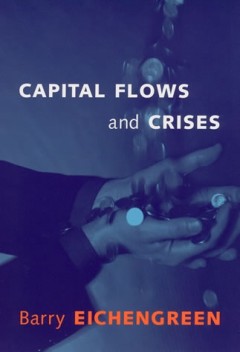
Capital Flows and Crises
The implications of capital mobility for growth and stability are some of the most contentious and least understood contemporary issues in economics. In this book, Barry Eichengreen discusses historical, theoretical, empirical, and policy aspects of the effects, both positive and negative, of capital flows. He focuses on the connections between capital flows and crises as well as on those betwe…
- Edition
- -
- ISBN/ISSN
- 9780262272186
- Collation
- 1 online resource (viii, 377 pages) :illustrations
- Series Title
- -
- Call Number
- -
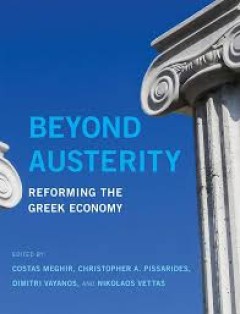
Beyond austerity :reforming the Greek economy
More than eight years after the global financial crisis began, the economy of Greece shows little sign of recovery, and its position in the eurozone seems tenuous. Between 2008 and 2014, incomes in Greece shrank by more than 25 percent, homes lost more than a third of their value, and the unemployment rate reached 27 percent. Most articles on Greece in the media focus on the effects of austerit…
- Edition
- -
- ISBN/ISSN
- 9780262339216
- Collation
- 1 online resource (x, 720 pages) :illustrations
- Series Title
- -
- Call Number
- -

What Have We Learned?: Macroeconomic Policy after the Crisis
Since 2008, economic policymakers and researchers have occupied a brave new economic world. Previous consensuses have been upended, former assumptions have been cast into doubt, and new approaches have yet to stand the test of time. Policymakers have been forced to improvise and researchers to rethink basic theory. George Akerlof, Nobel Laureate and one of this volume's editors, compares the cr…
- Edition
- -
- ISBN/ISSN
- 9780262323444
- Collation
- 1 online resource (vii, 359 pages) :illustrations
- Series Title
- -
- Call Number
- -
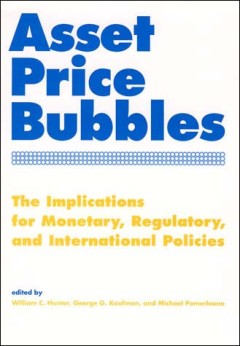
Asset price bubbles :implications for monetary, regulatory, and international…
Revised papers of a conference sponsored by the Federal Reserve Bank of Chicago and the World Bank.In both the industrialized and developing worlds, a distinctive feature of the last two decades has been prolonged buildups and sharp collapses in asset markets such as stock, housing, and exchange markets. The volatility has sparked intense debate in academic and policy circles over the appropria…
- Edition
- -
- ISBN/ISSN
- 9780262275910
- Collation
- 1 online resource (xxvi, 581 pages) :illustrations
- Series Title
- -
- Call Number
- -
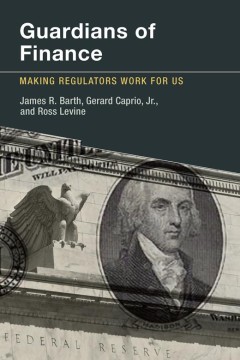
Guardians of finance :making regulators work for us
"The recent financial crisis was an accident, a 'perfect storm' fueled by an unforeseeable confluence of events that unfortunately combined to bring down the global financial systems. And policy makers? They did everything they could, given their limited authority. It was all a terrible, unavoidable accident. Or at least this is the story told and retold by a chorus of luminaries that includes …
- Edition
- -
- ISBN/ISSN
- 9780262301527
- Collation
- 1 online resource (xiii, 280 pages)
- Series Title
- -
- Call Number
- -
 Computer Science, Information & General Works
Computer Science, Information & General Works  Philosophy & Psychology
Philosophy & Psychology  Religion
Religion  Social Sciences
Social Sciences  Language
Language  Pure Science
Pure Science  Applied Sciences
Applied Sciences  Art & Recreation
Art & Recreation  Literature
Literature  History & Geography
History & Geography